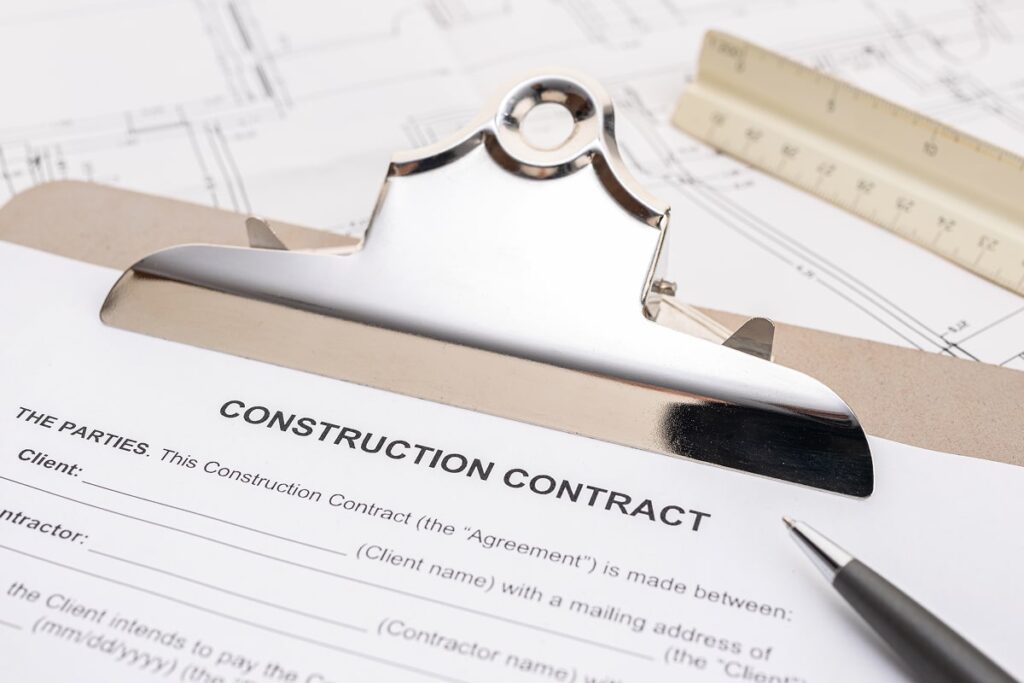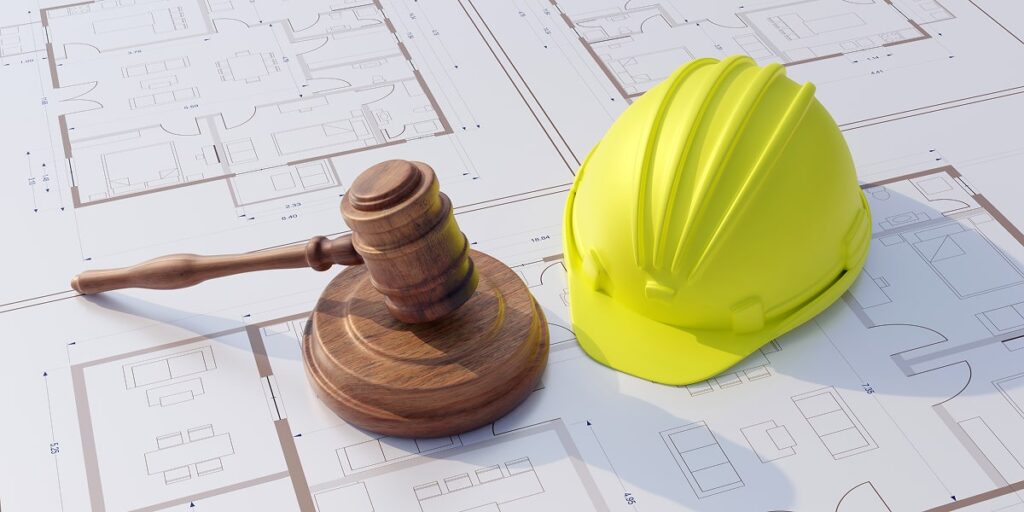Construction projects in the UK are becoming more complex, and with complexity comes the need for better ways to manage risk, time, and relationships.
That’s where NEC contracts come in. These contracts are now a preferred standard for managing projects across the country, and they’re more important than ever in 2025.
The Construction Consultants, a trusted name in construction project management, stress the importance of understanding NEC contracts if you want smoother, more cost-efficient builds.
Whether you’re working on public infrastructure or private commercial builds, knowing how NEC contracts work can help you stay on time, on budget, and in control.
What Are NEC Contracts?
NEC stands for New Engineering Contract. It’s a set of contract templates developed to make construction projects fairer, clearer, and more collaborative.
Originally introduced in the 1990s, NEC has grown to become the UK government’s default standard for publicly funded construction projects, as confirmed by the Infrastructure and Projects Authority.
These contracts are structured to improve communication between all parties—client, contractor, and project manager.
They reduce conflict by focusing on solving problems early, not when it’s too late.
The Purpose of NEC Contracts

The main goal of NEC contracts is to encourage good project management.
Every clause is written in plain English to make it easy to understand. It’s not just a legal document; it’s a working tool for the life of the project.
Contracts in the NEC suite include the Engineering and Construction Contract (ECC), Professional Services Contract (PSC), and the Term Service Contract (TSC), among others. Each has a specific purpose depending on the type of work.
Why Are NEC Contracts So Important Now?
As of 2025, NEC contracts are widely used across the UK and are being adopted internationally. Their popularity stems from their focus on clarity and proactive management.
Benefits of NEC Contracts
- Clear roles: Everyone knows what they need to do.
- Fewer disputes: Built-in processes for early warnings and risk management.
- Greater collaboration: Encourages teamwork rather than finger-pointing.
- Flexibility: Can be used for large or small projects, across different sectors.
- Focus on delivery: Emphasis on outcomes and performance.
According to the Institution of Civil Engineers (ICE), NEC contracts “encourage collaboration and sound project management principles,” which reduces the risk of overspend and project delays.
What’s New With NEC Contracts in 2025?
There have been updates and refinements to NEC4, the latest version of the contract suite. In 2025, these changes are making waves across UK construction sites.
Key Updates in 2025
Better Digital Integration
NEC is moving further into digital territory. Tools like CEMAR, widely used for NEC contract management, are now supported with more automation and reporting features.
Focus on Sustainability
NEC4 updates now push for greener building practices. There are clearer clauses related to environmental impact, waste reduction, and sustainability tracking. Projects are now more aligned with the UK Government’s Net Zero strategy.
Compliance with the Construction Playbook
With the UK Government’s Construction Playbook in effect, NEC contracts now reflect best practices for fair payment, early supply chain involvement, and value for money.
How Do NEC Contracts Work?
NEC contracts are structured around processes that keep projects moving. The focus is on early warnings, prompt action, and accurate reporting.
Key Features:
Early Warning System
All parties must raise issues as soon as they become aware of them. This helps the team find a solution before the problem affects the schedule or budget.
Compensation Events
When something unexpected happens that affects time or cost, a compensation event is triggered. The project team then agrees on the changes to the contract.
Option Flexibility
NEC contracts offer main options (A to F) that range from fixed-price to cost-reimbursable to target contracts. You choose based on your project’s scope and complexity.
Strict Timelines
Everyone involved must respond within set periods. If someone doesn’t reply on time, it can lead to penalties or automatic decisions.
A study by The Association for Project Management (APM) found that NEC’s risk-sharing mechanisms improved performance metrics compared to traditional contracts.
Why Contractors Should Care About NEC Contracts
If you’re a contractor, NEC contracts can make your life easier, once you understand how to use them.
What You Gain:
Fewer Surprises
With the early warning system and clear process for compensation events, you’ll know what’s coming before it becomes a problem.
Faster Payments
NEC contracts have clearly defined payment schedules and rules, helping you manage cash flow better.
Clearer Communication
Regular updates and reports are part of the contract. This keeps clients informed and prevents miscommunication.
Greater Trust
The collaborative format helps build trust. When things go wrong, the contract supports a solution-focused approach.
It also shows that projects under NEC frameworks have consistently achieved “better delivery outcomes” compared to older forms like JCT.
What’s the Best Way to Learn NEC Contracts?
You don’t need to become a lawyer to understand NEC. There are many practical ways to learn the essentials and use them effectively.
Learning Methods
Take a Short Course
Organisations like NEC Training UK, ICE Training, and CIOB Academy offer online and in-person training.
Read the NEC Guidance Notes
NEC provides guides for each type of contract. They’re written in simple language and explain how each clause works.
Join a Professional Group
APM, CIOB, and RICS all offer forums and discussion groups focused on NEC best practices.
Use Contract Management Tools
Platforms like CEMAR and Thinkproject make it easier to follow NEC workflows.
Partner with Experts
Working with firms like The Construction Consultants gives you access to professionals who know NEC inside and out.
What Types of NEC Contracts Are There?
Not all NEC contracts are the same. There’s a suite of options designed for different kinds of work, allowing you to choose the one that best fits your project’s goals and setup.
Most Common Types
NEC4 Engineering and Construction Contract (ECC)
This is the most widely used NEC contract.
It is designed for large construction projects where both design and construction are delivered under one agreement.
It suits both straightforward and complex jobs. The ECC supports collaborative risk-sharing and includes clear timelines for deliverables.
It is often used for infrastructure works like roads, railways, schools, and hospitals.
NEC4 Term Service Contract (TSC)
This contract is used for the appointment of a supplier to manage ongoing maintenance and service-related tasks over a fixed term.
It works well for facilities management, asset maintenance, and housing repairs.
The TSC ensures performance is tracked throughout the contract, often using key performance indicators (KPIs) to drive improvement.
NEC4 Professional Service Contract (PSC)
Designed for professional consultants, such as architects, quantity surveyors, engineers, and designers.
The PSC ensures that professional services are delivered in a timely, cost-effective, and well-managed way.
It helps align the goals of the client and consultant with defined responsibilities and deliverables.
NEC4 Framework Contract (FC)
Used when a client expects to commission several similar works, services, or goods over time.
The FC creates a framework agreement with selected suppliers and allows for individual task orders to be issued when needed.
It saves time and effort in procurement by streamlining the process across multiple projects.
NEC4 Supply Contract (SC)
This contract governs the purchase of goods and materials.
It is especially useful for engineering and construction projects that need to procure equipment, prefabricated items, or bulk materials.
The SC offers clarity in specifications, delivery terms, and payment timelines.
Each of these contracts comes with supporting documents such as Scope, Site Information, and Pricing Schedules.
These components help define exactly what is expected from each party, ensuring everyone is aligned from the start.
How to Avoid Mistakes When Using NEC Contracts
Contractors can sometimes get tripped up if they don’t follow the NEC process exactly. Here are some of the most common pitfalls.
Common Mistakes
- Missing Deadlines
NEC contracts have strict timeframes. A missed deadline can lead to lost rights or automatic approvals.
- Not Raising Early Warnings
If you fail to notify the client about a risk, you could be held responsible for delays or extra costs.
- Inaccurate Record Keeping
Keeping clear and timely records is essential, especially for compensation events.
- Assuming It’s Like a JCT Contract
NEC is very different. It requires more active involvement from all parties.
According to Pinsent Masons, a UK law firm, many disputes under NEC arise simply because one party didn’t follow the strict timelines or failed to notify changes properly.
Turn Contract Confusion into Confidence
Understanding NEC contracts in 2025 isn’t just “nice to have.” It’s a must.
These contracts are now central to the way construction is done in the UK.
If you’re working on public projects, bidding for new work, or growing your company, you need to be fluent in NEC.
The Construction Consultants know how important this understanding is and help clients navigate the NEC world every day.
Whether you’re managing your first public build or a complex infrastructure project, knowing your way around these contracts will save you time, money, and stress.
Use NEC contracts as a tool to grow, not a hurdle to fear. Because the more you understand the system, the better your outcomes will be.
If you need support interpreting NEC4 or want to review your contracts, speak to an expert. It could be the most cost-effective decision you make on your next project.







